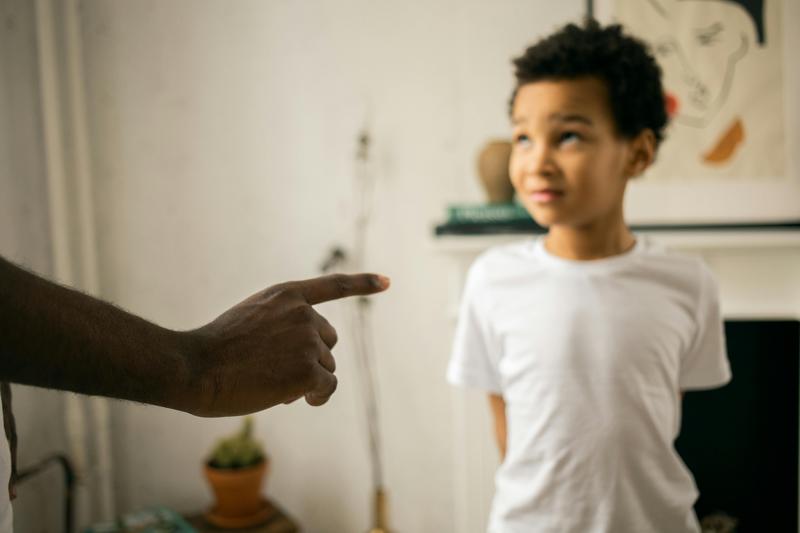You’re Training Others Without Realizing It

Most people underestimate how much influence they really carry.
They assume their mood, their words, the way they walk into a room—don’t matter that much. But here’s the truth: you’re more important than you think.
Today I want to show you how your inner state doesn’t just affect you. It shapes the people around you—whether you intend it or not.
The reality is, your influence is never neutral. You’re either reinforcing patterns that help…or patterns that limit. And once you see that, you start to recognize the weight you already carry.
The Signal You’re Always Broadcasting
Here’s the first thing to know: you don’t switch your influence on and off. Every moment, you’re broadcasting a signal through your tone, your body, your presence.
Think about it. Someone walks into a room frustrated—even if they don’t say a word, you feel it. Your body tenses. You get cautious. Maybe you even shut down a little.
That reaction isn’t random. Your nervous system is picking up their state and starting to rehearse it.
Now flip the scene. Someone enters steady and calm. Instantly, you feel more open. You think clearer. You’re willing to contribute more.
Neither person gave you a speech. Neither asked you to change. But you did. You practiced the state they carried.
That’s the hidden truth: we’re always reinforcing states in others just by the way we show up.
So here’s the question: what signal are you broadcasting most of the time? And are the people around you better for it—or worse?

Repetition Creates Lasting Patterns
Influence doesn’t come from one dramatic moment. It comes from repetition.
A single sarcastic comment isn’t much. But a hundred little digs over the years? That wires distrust. A nervous system learns, “This is what people are like. This is how relationships work.”
It happens at home, at work, even in casual friendships. The repetition conditions how others feel and think around you.
And it works the other way, too. Someone who consistently shows up steady and encouraging—not hyped, not fake, just reliable—becomes a reference point. Over time, people begin to rehearse confidence, simply because they’ve been conditioned to expect it.
The nervous system doesn’t care whether it’s rehearsing negativity or calm—it just learns what it’s exposed to again and again.
So think about this: what am I repeating enough times that it’s becoming a pattern in the people close to me?
Why Presence Speaks Louder Than Words
We put a lot of weight on words. But in truth, presence speaks louder.
You can say, “I believe in you.” But if your energy carries doubt, the doubt speaks louder. People absorb that, not the sentence.
On the other side, someone with quiet conviction doesn’t need to say a thing. Just by being themselves, they open space for others to believe in more.
This is why presence is contagious. Nervous systems sync. Emotional intensity spreads. Without conscious training, we end up multiplying whatever state we’re in. Fear multiplies fear. Doubt multiplies doubt. Calm multiplies calm.
And this isn’t just about personal interactions. Think about the office. There’s always that person who drains energy. They may be skilled, maybe even critical to the team—but every meeting feels heavier with them in the room. Others leave less creative, less motivated.
Then compare that to the leader who stays steady even under pressure. They don’t brag. They don’t micromanage. But the team rises to their level. Collaboration sharpens. Ideas flow.
Neither one needed a title to have impact. Both trained the room—just through presence.
So ask yourself: what are people practicing when they’re around me—not from my words, but from my presence?

How Influence Shows Up at Home and with Friends
Work reveals patterns quickly. Home reveals them over time.
Think about kids. They don’t just absorb what you tell them. They rehearse the state you live in. A parent who jokes bitterly about people—over years—trains skepticism. A parent who carries patience—over years—trains security.
Every cue wires the nervous system. Every repeated state becomes a lens. And the longer the exposure, the deeper the imprint.
And it’s not just kids. Influence shows up in friendships too.
We all know the friend who always vents, who always assumes the worst. After time with them, you might notice you feel heavier, more negative.
Then there’s the friend who listens with steadiness, who doesn’t overreact. You leave more grounded, more capable.
It’s not about cheerleading. It’s about training states. Without realizing it, your friends are rehearsing your patterns with you.
So ask: what repeated signals might I be handing to the people closest to me? And are my friends leaving me clearer, or cloudier?
You Can’t Opt Out of Influence
This is the point most people miss: you don’t get to choose whether you influence others. You only get to choose how.
Most people run unconsciously. They don’t notice that they’re reinforcing frustration, doubt, or cynicism in the people around them. They think, “That’s just me.” But it’s not. It’s a practiced state.
The good news? If you’ve practiced one state, you can practice another.
With training, you can notice: “This isn’t how I want to show up.” And redirect. Practice something else.
Every rep strengthens the new signal. Every rep makes it easier for others to rehearse with you.
This is the difference between damage control and real training. Most people try to manage symptoms—they wait until stress is high, then scramble to calm down. They wait until anger peaks, then try to cool off.
That’s not training. That’s survival.
Training means you rehearse before you need it. You practice calm when nothing’s wrong, so it’s there when pressure hits. You practice clarity in small choices, so it’s natural when the stakes are high.
That’s how you shift from unconsciously reinforcing chaos to intentionally reinforcing strength.
What state am I rehearsing daily—whether I mean to or not?

Ownership and the Real Gift You’re Giving
We usually think of giving in terms of gifts, money, or time. But the real gift is the state you hand people every day.
That sigh of exhaustion you carry home—gift.
That flash of irritation—gift.
That grounded calm—also a gift.
You don’t get to choose whether you give. You only choose what.
And here’s something we often forget: the way you influence yourself becomes the way you influence others.
If your inner dialogue is harsh and critical, that state leaks out. You condition impatience not only in yourself, but in those around you.
If your self-dialogue is steady, clear, focused—you export that steadiness. Others begin to practice it simply by being near you.
Which means the responsibility starts inside. The state you practice inwardly is the one you export outwardly.
And here’s the encouraging part: you’re not broken. If you’ve been reinforcing patterns that don’t serve, it’s not who you are—it’s just what you’ve practiced. And practice can change.
The nervous system doesn’t care whether it’s repeating stress or calm. It wires whatever you rehearse. Which means if you can train one state, you can train another.
So the real question is this: what state are you practicing over and over—without realizing it? Because that’s not only what you’re building in yourself. That’s what you’re giving to others.
An Invitation
If you’re ready to stop managing symptoms and start training a steady, resilient inner state, I’ve built a system for that. It integrates your emotional patterns with your nervous system—so you don’t just understand your patterns, you actually shift them.
I also share practices weekly on Instagram—@mikewangcoaching.
And if you want more depth, you can join the newsletter here.
